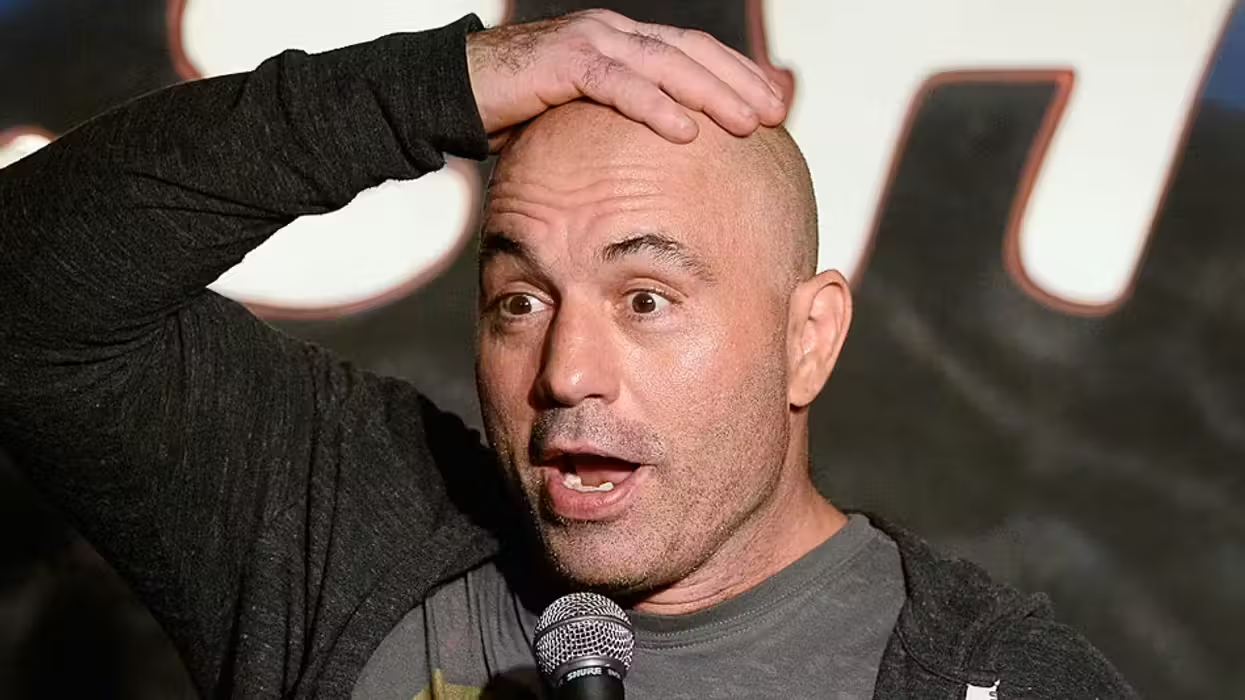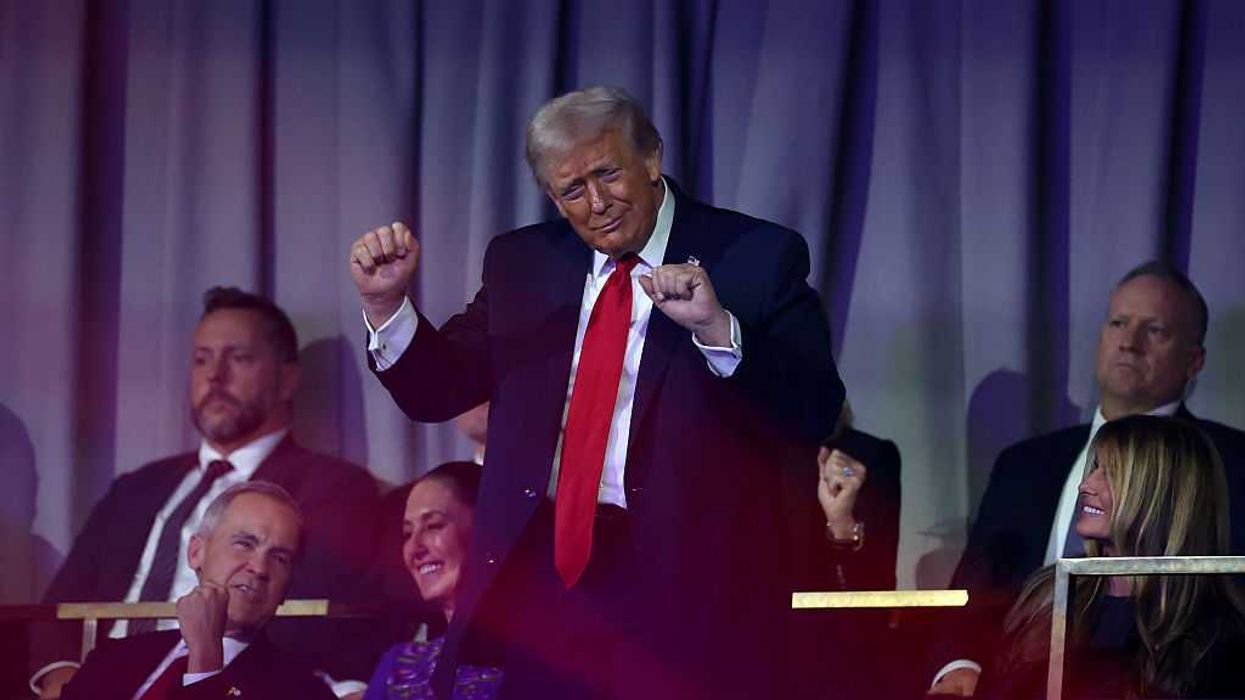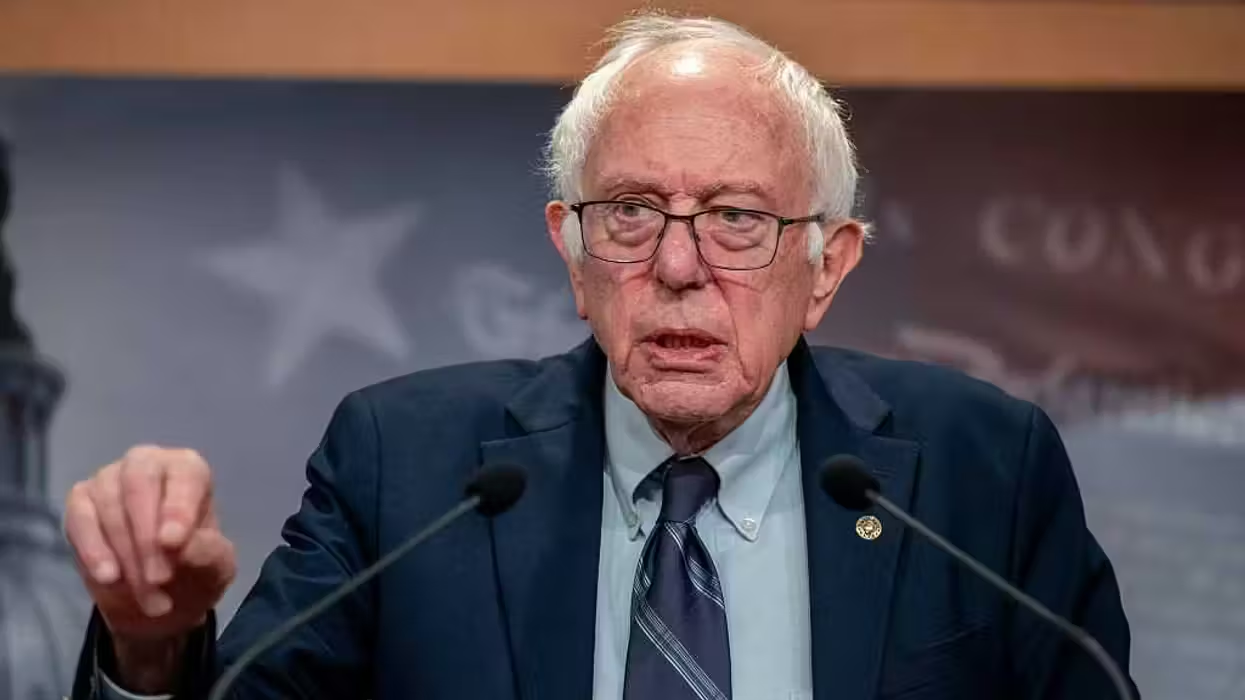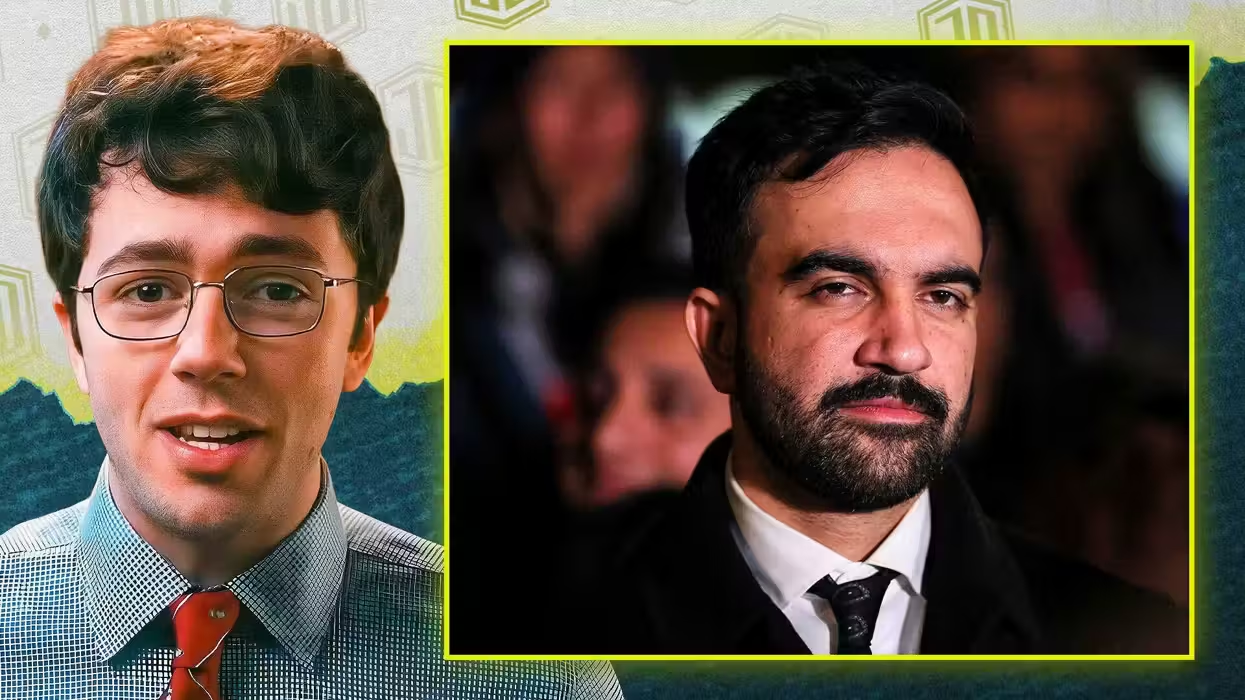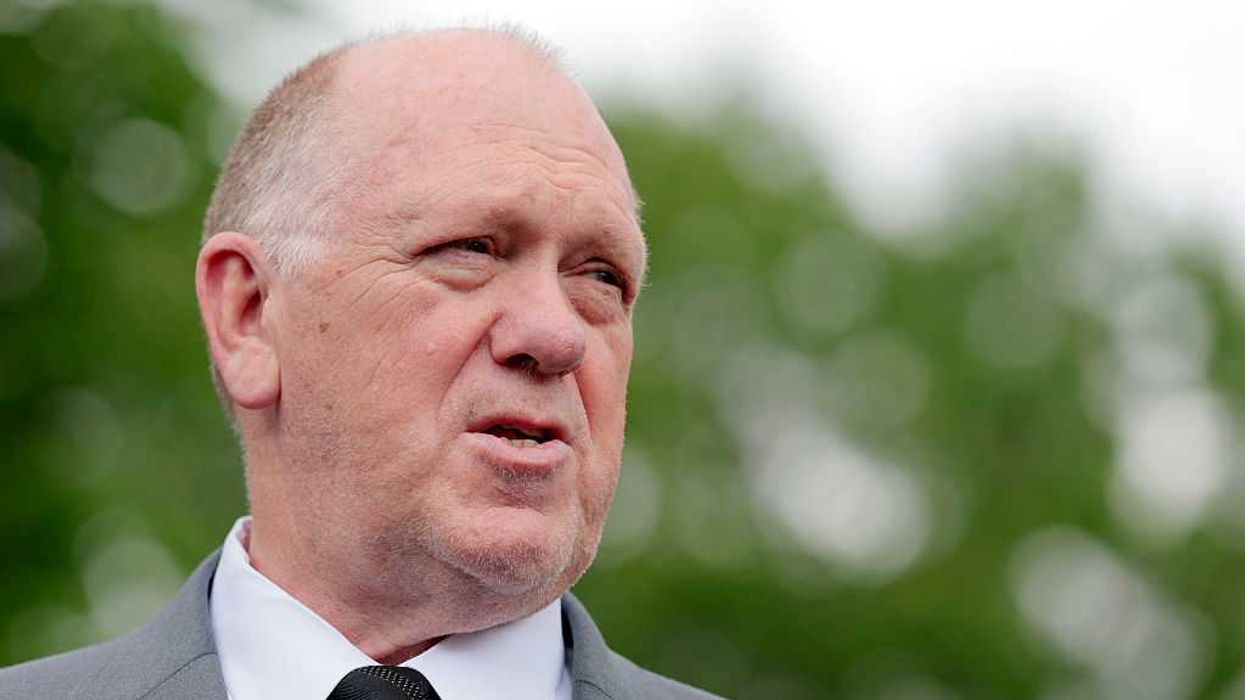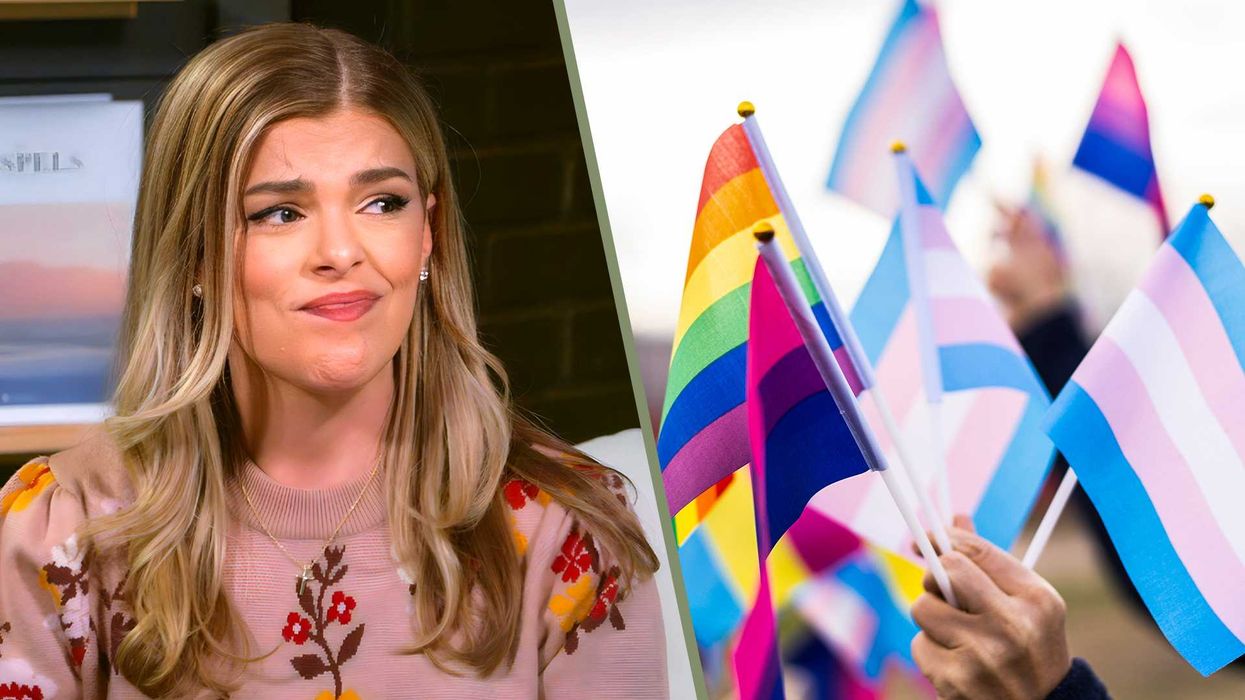
© 2025 Blaze Media LLC. All rights reserved.
These Are Abe Lincoln's 5 Handwritten Versions of the 'Gettysburg Address' (Plus: Did He Omit 'God' From the Speech?)
November 19, 2012
"Four score and seven years ago..."
Anyone who prepares an outline or a manuscript for a speech knows that it takes intense practice and refining to ensure that the words end up being relayed properly. Considering the importance of Abraham Lincoln's "Gettysburg Address," it's no surprise that the nation's sixteenth president drafted at least two copies of the speech before he finally presented it.
Naturally, the two versions -- written in Lincoln's own hand -- differ a bit from one another. However, there are at least three other copies, also penned by the president, that have their own set of differences from the originals. Rather than being composed before his well-known, two-minute talk, these latter drafts were prepared well after the "Gettysburg Address" was uttered. Why? As special requests for the speech came in, Linclon rewrote it with slight variation (after all, copiers didn't exist, thus minor tweaks were to be expected).
 Photo Credit: White House
Photo Credit: White House
The National Constitution Center has penned a fascinating blog post, providing all five manuscripts (and a sixth version, as printed by the Associated Press in November 1863). In the post, the organization, devoted to studying the U.S. Constitution, showcases the differences between each of Lincoln's versions (portions in bold show the differences in text between each version).
TheBlaze has placed each into context, providing you with some interesting background surrounding the well-known historical event.
--
The "Nicolay Copy": The Earliest Known Version of the Address:
This is the first of five drafts of the "Gettysburg Address," which was delivered at the dedication of a memorial cemetary by Lincoln in November 1863. The National Constitution Center provides more background information about the speech:
Lincoln was invited as guest speaker at the Gettysburg cemetery event as a courtesy, and it wasn’t entirely expected he would attend. The famed orator Edward Everett was the featured speaker.Lincoln and his staff arrived on the day before the event, and Lincoln compared notes with Everett. The president also worked on his speech that night. [...]
Lincoln was described as looking pale as he rose at the end of the ceremony to speak. Accounts from the time period said he was applauded, and left to go back to Washington.
The first version of the address is noteworthy for a variety of reasons. As the Library of Congress (LOC) notes, "This document is presumed to be the only working, or pre-delivery, draft and is commonly identified as the Nicolay Copy because it was once owned by John George Nicolay, Lincoln's private secretary."
 Photo Credit: Library of Congress
Photo Credit: Library of Congress
Read text of the letter, below:
"Four score and seven years ago our fathers brought forth, upon this continent, a new nation, conceived in liberty, and dedicated to the proposition that “all men are created equal.”Now we are engaged in a great civil war, testing whether that nation, or any nation so conceived, and so dedicated, can long endure. We are met on a great battle field of that war. We have come to dedicate a portion of it, as a final resting place for those who died here, that the nation might live. This we may, in all propriety do. But, in a larger sense, we can not dedicate—we can not consecrate—we can not hallow, this ground—The brave men, living and dead, who struggled here, have hallowed it, far above our poor power to add or detract. The world will little note, nor long remember what we say here; while it can never forget what they did here.
It is rather for us, the living, we here be dedicated to the great task remaining before us —that, from these honored dead we take increased devotion to that cause for which they here, gave the last full measure of devotion—that we here highly resolve these dead shall not have died in vain; that the nation, shall have a new birth of freedom, and that government of the people by the people for the people, shall not perish from the earth."
--
The "Hay Copy": The Second Known Version of the Speech:
This second version of the address was given to Lincoln's secretary John Hay. His descendants then donated it to the LOC in 1916. Like the "Nicolay Draft," this version is most closely tied to the November 19 speech the president delivered.
 Photo Credit: Library of Congress
Photo Credit: Library of Congress
Read the text, below:
"Four score and seven years ago our fathers brought forth, upon this continent, a new nation, conceived in Liberty, and dedicated to the proposition that all men are created equal.Now we are engaged in a great civil war, testing whether that nation, or any nation, so conceived, and so dedicated, can long endure. We are met here on a great battlefield of that war. We have come to dedicate a portion of it as a final resting place for those who here gave their lives thatthat nation might live. It is altogether fitting and proper that we should do this.
But in a larger sense we can not dedicate—we can not consecrate—we can not hallow this ground. The brave men, living and dead, who struggled, here, have consecrated it far above our poor power to add or detract. The world will little note, nor long remember, what we say here, but can never forget what they did here. It is for us, the living, rather to be dedicated here to the unfinished work which they have, thus far, so nobly carried on. It is rather for us to be here dedicated to the great task remaining before us—that from these honored dead we take increased devotion to that cause for which they here gave the last full measure of devotion—that we here highly resolve that these dead shall not have died in vain; that this nation shall have a new birth of freedom; and that this government of the people, by the people, for the people, shall not perish from the earth."
--
The "Everett" Copy: Written After the November 19 Event:
The third copy of the address, like the other remaining two, was written by Lincoln after he delivered the "Gettysburg Address." Edward Everett, an famed orator who spoke on November 19 before Lincoln delivered the famous address, later asked the president for a printed version of it. So, well after the event, Lincoln provided the so-called "Everett copy."
 Photo Credit: AP
Photo Credit: AP
Read it, below:
"Four score and seven years ago our fathers brought forth, upon this continent, a new nation, conceived in Liberty, and dedicated to the proposition that all men are created equal.Now we are engaged in a great civil war, testing whether that nation, or any nation so conceived, and so dedicated, can long endure. We are met on a great battle-field of that war. We have come to dedicate a portion of that field, as a final resting-place for those who here gave their lives, that that nation might live. It is altogether fitting and proper that we should do this.
But, in a larger sense, we can not dedicate, we can not consecrate—we can not hallow—this ground. The brave men, living and dead, who struggled here, have consecrated it far above our poor power to add or detract. The world will little note, nor long remember what we say here, but it can never forget what they did here.
It is for us, the living, rather, to be dedicated here to the unfinished work which they who fought here, have, thus far, so nobly advanced. It is rather for us to be herededicated to the great task remaining before us—that from these honored dead we take increased devotion to that cause for which they here gave the last full measure of devotion—that we here highly resolve that these dead shall not have died in vain—that this nation, under God, shall have a new birth of freedom—and that government of the people, by the people, for the people, shall not perish from the earth."
--
The "Bancroft Copy" and the "Bliss Copy" Versions:
The final two versions, written in Lincoln's own handwriting, were produced for historian George Bancroft and Col. Alexander Bliss, a union general during the Civil War. You can read the text of these final two speeches on the National Constitution Center's web site.
 The Bliss copy (Photo Credit: White House Historical Association)
The Bliss copy (Photo Credit: White House Historical Association)
--
Did Lincoln Omit "Under God" From the Speech?
There's an interesting debate surrounding whether Lincoln actually included "God" in the delivery of the "Gettysburg Address." In the Nicolay and Hay versions -- the two that preceded the event -- there is no mention of the Almighty. It wasn't until the Everett version, which was produced after the address, that "under God" was added into the transcript.
On the National Constitution Center's blog, Scott Bomboy claims that we will never truly know if Lincoln uttered the Lord's name during the speech, as it was not recorded. However, he also notes that numerous accounts -- based on the AP version of the speech which was transcribed and published at the time -- corroborate the fact that Lincoln did, indeed, use the words "under God" in his final delivery.
A look at the AP text, as published nearly 150 years ago, seems to provide the answer (see bold):
"Four score and seven years ago our fathers brought forth upon this continent a new nation, conceived in liberty and dedicated to the proposition that all men are created equal. [Applause] Now we are engaged in a great civil war, testing whether that nation, or any nation so conceived and so dedicated, can long endure. We are met on a general battle-field of that war; we are met to dedicate a portion of it as the final resting place of those who here gave their lives that that nation might live. It is altogether fitting and proper that we should do this, but in a larger sense we cannot dedicate, we cannot consecrate, we cannot hallow this ground. The brave men, living and dead, who struggled here, have consecrated it far above our poor power to add or detract. [Applause] The world will note, nor long remember, what we say here, but it can never forget what they did here. [Applause]. It is for us, the living, rather to be dedicated here to the unfinished work that they have thus far so nobly carried on. [Applause]. It is rather for us here to be here dedicated to the great task remaining before us, that from these honored dead we take increased devotion to that cause for which they here gave the last full measure of devotion. That we here highly resolve that the dead shall not have died in vain. [Applause] That the nation shall, under God, have a new birth of freedom, and that the Government of the people, by the people and for the people, shall not perish from the earth. [Long applause. Three cheers given for the President of the United States and the Governors of the States…."
To view all five versions, click here.
(H/T: Constitution Daily)
Want to leave a tip?
We answer to you. Help keep our content free of advertisers and big tech censorship by leaving a tip today.
Want to join the conversation?
Already a subscriber?
Billy Hallowell is a digital TV host and interviewer for Faithwire and CBN News and the co-host of CBN’s "Quick Start Podcast."
Billy Hallowell
Billy Hallowell is a digital TV host and interviewer for Faithwire and CBN News and the co-host of CBN’s "Quick Start Podcast."
more stories
Sign up for the Blaze newsletter
By signing up, you agree to our Privacy Policy and Terms of Use, and agree to receive content that may sometimes include advertisements. You may opt out at any time.
Related Content
© 2025 Blaze Media LLC. All rights reserved.
Get the stories that matter most delivered directly to your inbox.
By signing up, you agree to our Privacy Policy and Terms of Use, and agree to receive content that may sometimes include advertisements. You may opt out at any time.

